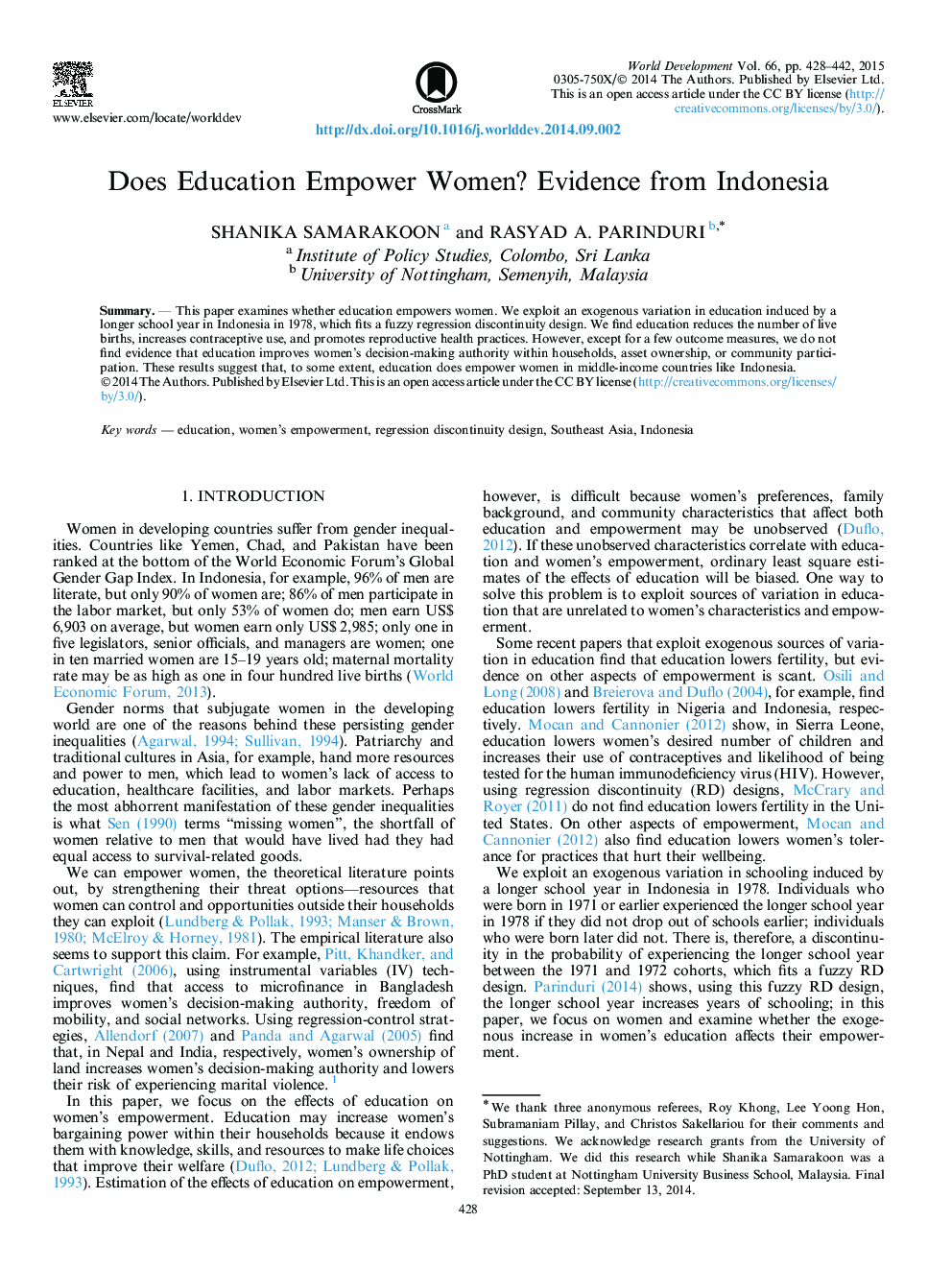| Article ID | Journal | Published Year | Pages | File Type |
|---|---|---|---|---|
| 7394495 | World Development | 2015 | 15 Pages |
Abstract
This paper examines whether education empowers women. We exploit an exogenous variation in education induced by a longer school year in Indonesia in 1978, which fits a fuzzy regression discontinuity design. We find education reduces the number of live births, increases contraceptive use, and promotes reproductive health practices. However, except for a few outcome measures, we do not find evidence that education improves women's decision-making authority within households, asset ownership, or community participation. These results suggest that, to some extent, education does empower women in middle-income countries like Indonesia.
Related Topics
Social Sciences and Humanities
Economics, Econometrics and Finance
Economics and Econometrics
Authors
Shanika Samarakoon, Rasyad A. Parinduri,
